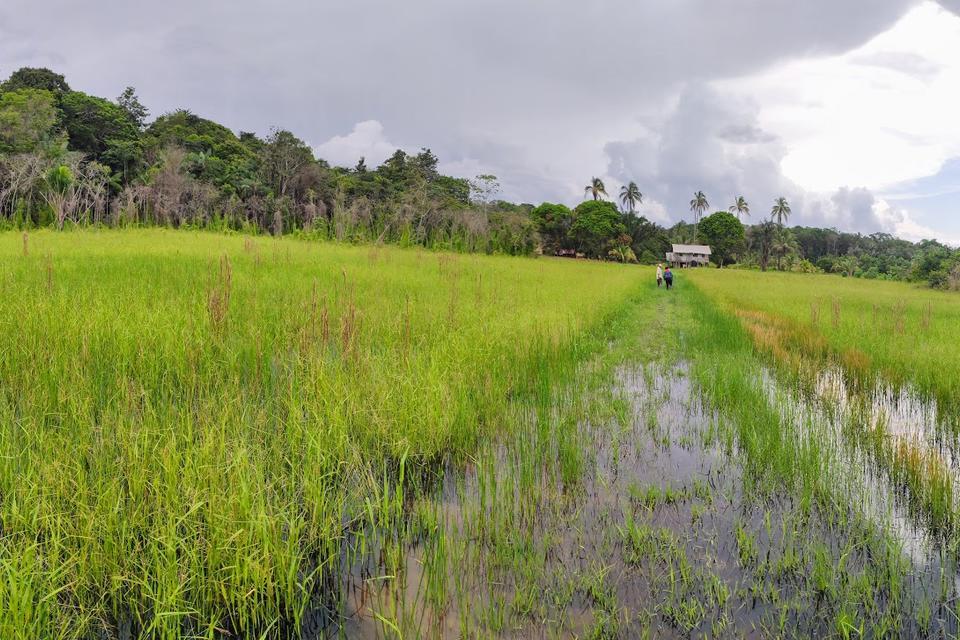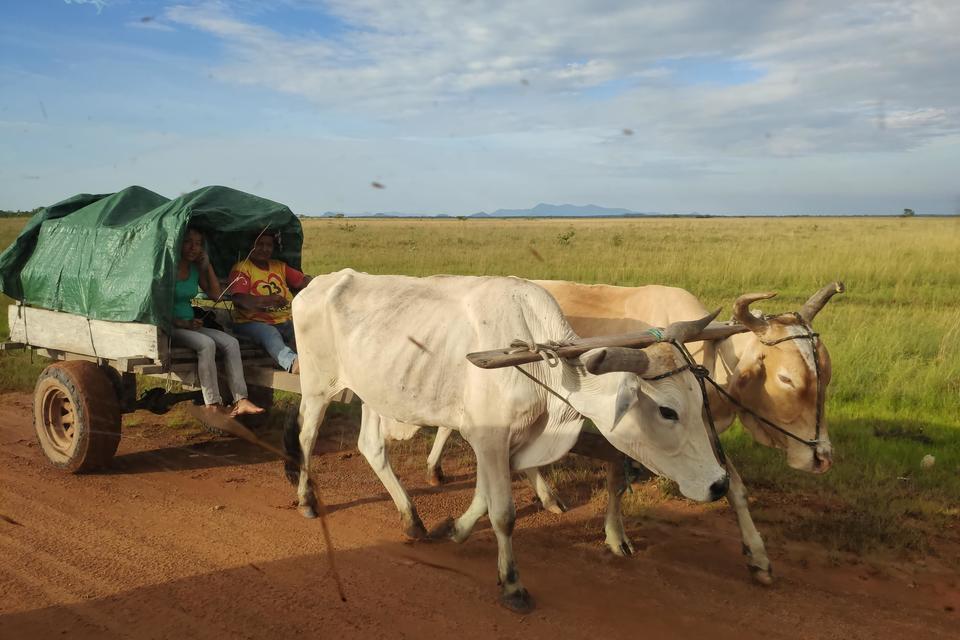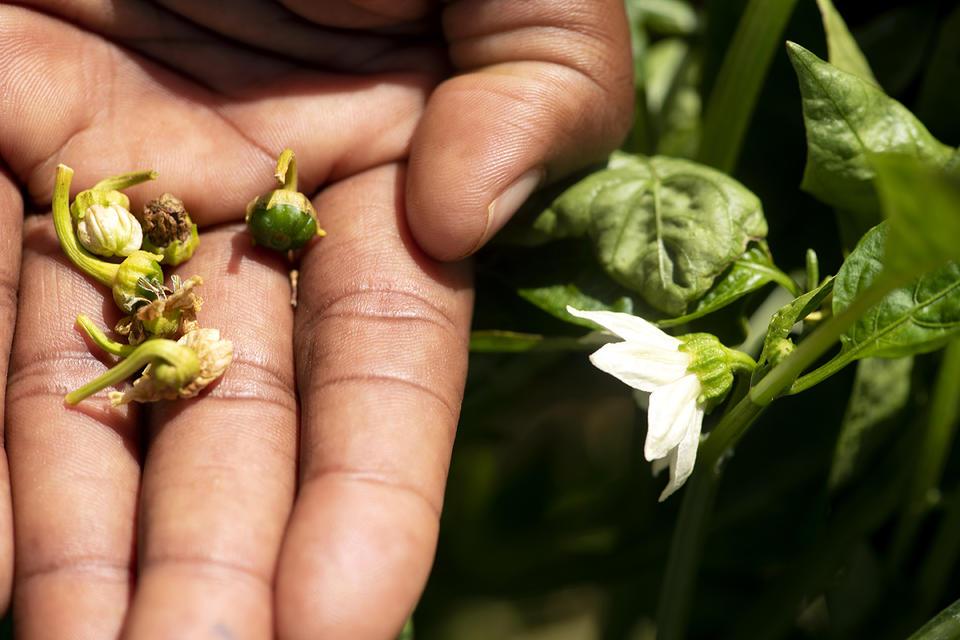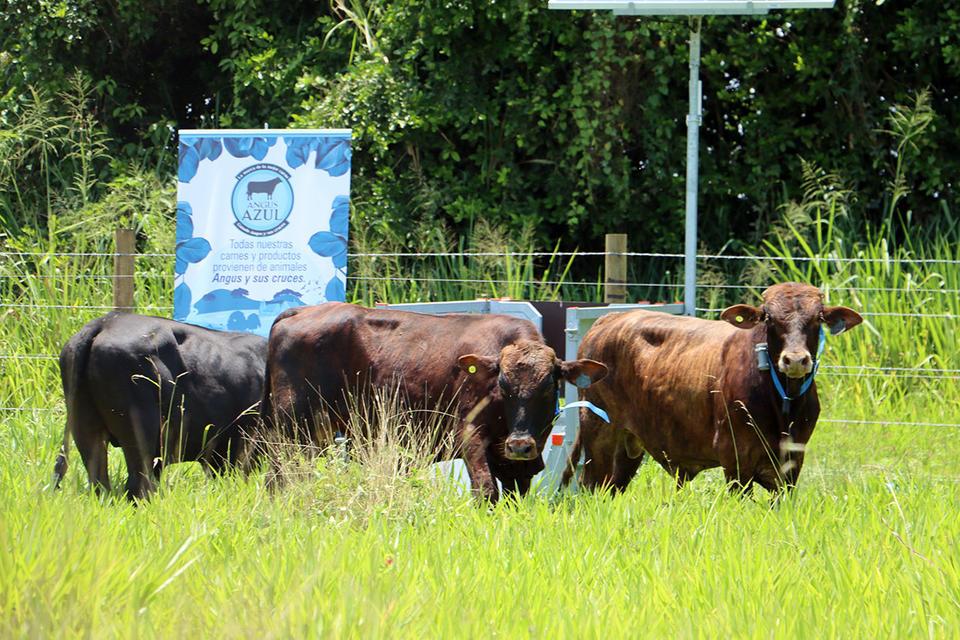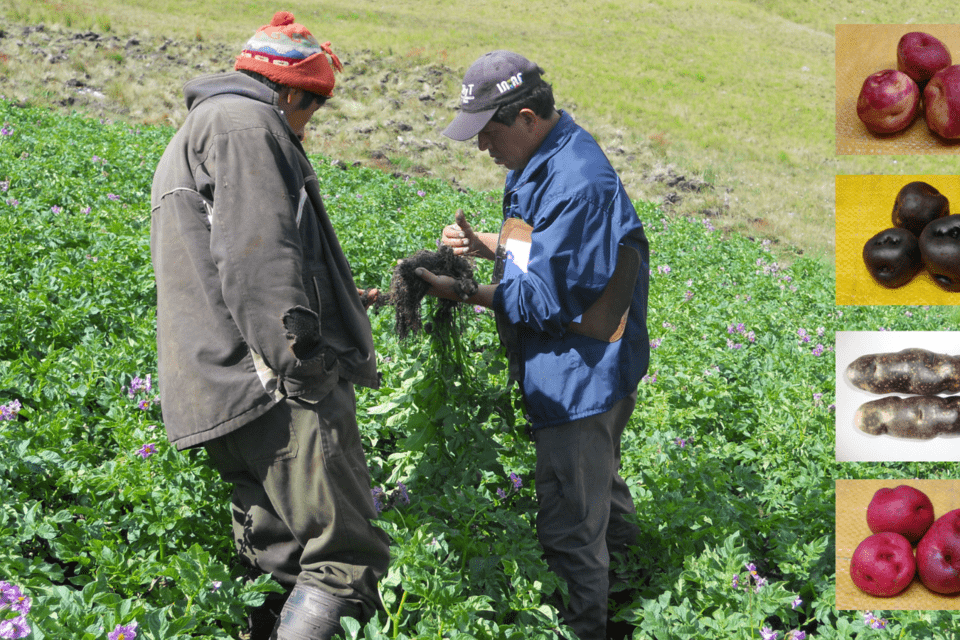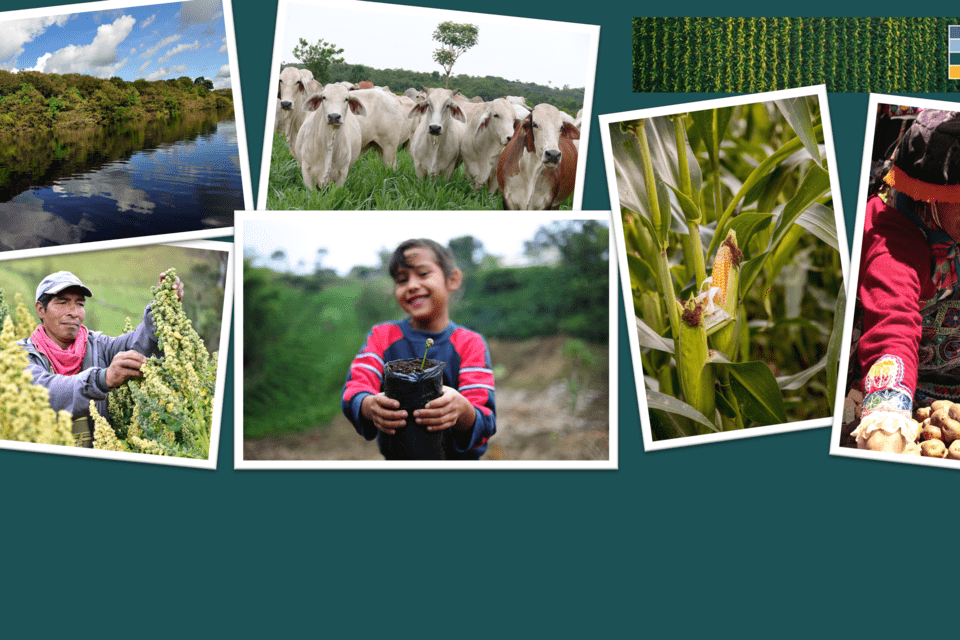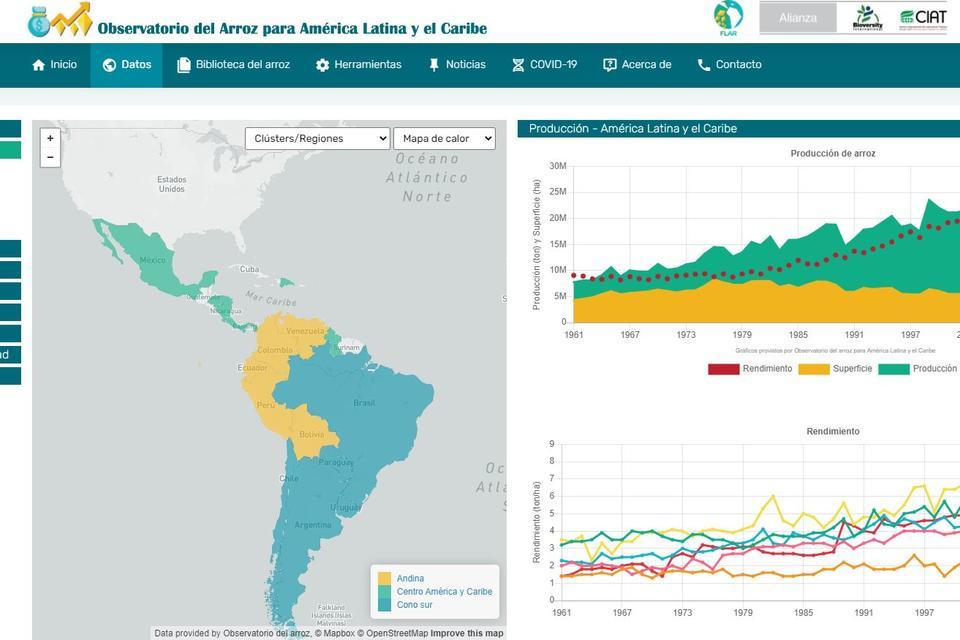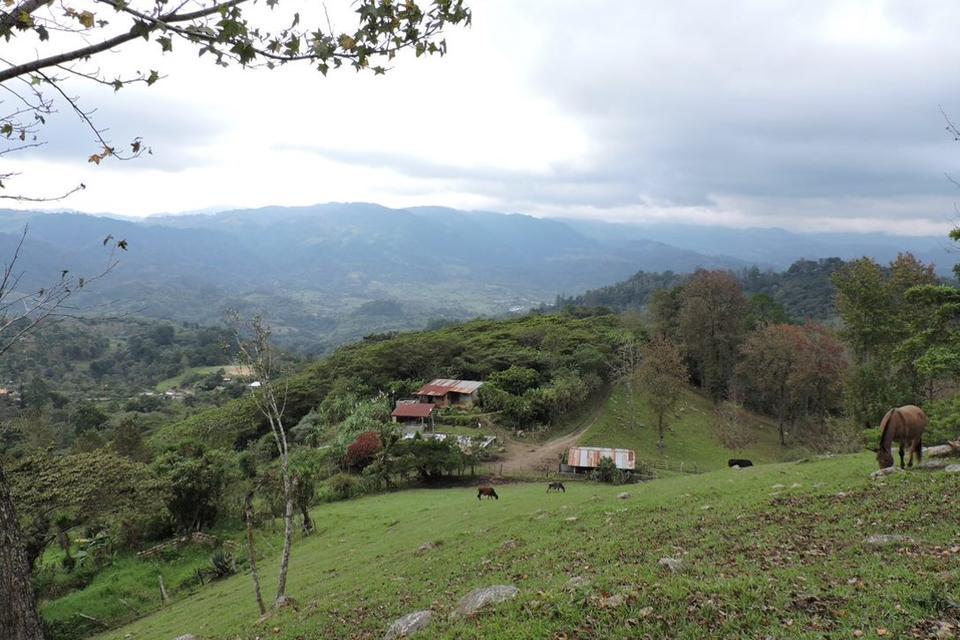2021 Annual Report Tackling Climate Change on Multiple Fronts across the Americas
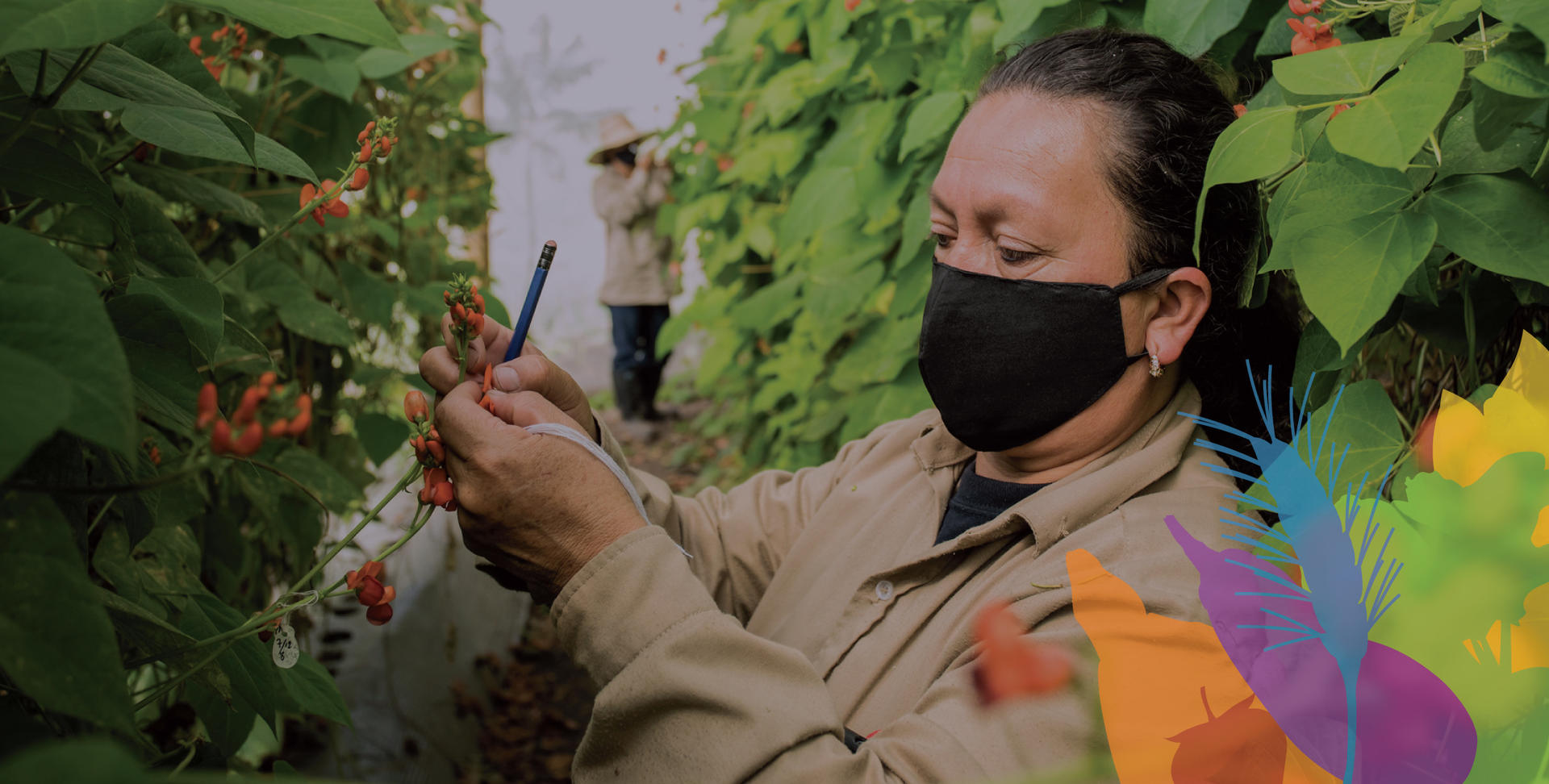
Zero deforestation agricultural practices in South America, climate-smart agriculture for extreme-weather areas of the Caribbean, and the growth of sustainable finance and geospatial technology in the Amazon were among the dozens of Alliance highlights in the Americas in 2021.
Despite the continued external challenges of 2021 – the pandemic and the economic and political uncertainty that came with it – the Alliance in Latin America and the Caribbean again put together a year to be proud of.
Project concluded, new ones launched, and fieldwork and lab work began with renewed vigor as pandemic risks diminished – in no small part due to the Americas’ staff-wide embrace of COVID-19 vaccinations, which topped 95%.
Genebank gets new home, hits global goals
We wrapped up construction on our new genebank in Colombia, Future Seeds, setting it up for full operationality in 2022. Finishing the building was no small feat – global logistical constraints exacerbated by the pandemic and a prolonged national strike made getting workers and materials safely to the site complicated.
The situation also required deft management of the existing genebank and contingency plans to keep the bank functioning were a success. We’re proud to report, however, that no accessions were lost during the year and that our dedicated staff were recognized for their outstanding commitment by the Crop Trust.
Prior to transfer to the new genebank facility, our bean and forages collections reached 90% availability for global distribution, helping our genebank attain the Long-Term Partnership Agreement with the Crop Trust to fund the collections’ maintenance in perpetuity.
A closer look at Central America and the Caribbean's climate extremes
Some of the consistently hardest-hit areas by the climate crisis in our region are in Central America and the Caribbean. In close collaboration with our partners across the region, we delivered on several new projects to help producers and others in the food system deal with the climate crisis.
We developed several new Climate-Smart Agriculture (CSA) tools and interventions in Guyana and Jamaica. Watch the videos we produced, which involved the communications team’s return to the field after almost two years.
The research and communications work were key to concluding these projects funded by the Caribbean Development Bank and will certainly pave the way toward an increase in our climate work in the Caribbean.
In Central America, our researchers collaborated with the recently concluded CGIAR Research Program (CRP) on Climate Change, Agriculture and Food Security (CCAFS) to provide climate and weather data to producers in Guatemala’s Dry Corridor. CCAFS and Alliance scientists held discussions and released a policy brief to help address growing climate and security concerns in the region.
Learn more about the impact of CCAFS here:
Toward zero-deforestation livestock in Colombia
The livestock sector is often maligned due to its lack of sustainability – forests are felled to make way for animal production systems that pump planet-heating emissions into the atmosphere. This double-hit on the climate can be greatly mitigated, however, with the right combinations of land-use and livestock raising practices. In Colombia, our work focused on livestock systems that have the potential for net-zero greenhouse gas emissions.
Sustainable Investments in Brazil
The Amazon Biodiversity Fund, the first of its kind to promote sustainable business in the Amazon, initiated a $1 million crop-livestock-forestry system that will include 5,000 hectares of tree planting. This fund, which was launched in 2019 and was designed with USAID Brazil and the Alliance, is part of a growth trend in sustainable investments in the Amazon where our Partnership Platform for the Amazon is working.
The Alliance’s SERVIR Amazonia and CAL-PSE teamed up with local partners to pilot two projects in Brazil to develop tools and mapping data through the Ground open-source project, a platform maintained by Google. Work with Quilombola communities is designed to help their largely unknown agroforestry communities collect key environmental and territory data on their farms and increase their visibility in climate policy and financial circles.
SERVIR Amazonia – a collaboration led by the Alliance, NASA and USAID – delivered new services last year, including one to monitor gold mining in the Peruvian Amazon and another to help communities monitor and protect their forests. Several new services are on track for delivery in 2022. An overview of SERVIR Amazonia’s highlights from 2021 can be read here.
A short tour around the Americas, from rice to cacao
A story from Bolivia illustrates how local farmers’ preservation of potato diversity can be a model for on-farm genetic diversity conservation.
How well do we know the food system in Cali, Colombia? We released a major analysis last year that will help policymakers in Cali address pressing issues related to dietary health in the city. The work is part of FECB’s Food Action Alliance collaboration in Latin America that is seeking to promote market-driven, sustainable food system transformation.
Our work on rice, both at our Colombia campus and across the 17-country Latin American Fund for Irrigated Rice (FLAR), included an overhaul of the Rice Observatory, an open-data platform for the rice sector in both Latin America and around the globe. To keep ahead of rice blast fungus, a disease that is a major threat to production, researchers produced a tutorial video to help producers identify and respond to the blight.
Agua de Honduras – a water management platform for the Central American country's driest regions – is now a critical management tool for producers and policymakers. Its success has led to adoption, or planned adoption, across Central America and nine other countries including Argentina, and nations in the Caribbean and Africa.
Gold mining in the Amazon, most of it illegal, has contributed to the loss of some 90,000 hectares of forest. Our researchers collaborated on a study that showed a cover crop had promising results for speeding up landscape restoration in these devastated areas.
The feared fungus Fusarium Tropical Race 4, a banana disease that threatens livelihoods of approximately 12 million jobs in Latin America, has so far been contained to a few outbreaks in Latin America. This can be credited to cross-country collaboration and 12 years of contributions from Alliance scientists.
We produced zero-deforestation business models for Curimaná and a palm oil association in Peru. These results stem from the International Climate Initiative Sustainable Amazon Businesses work funded by the German environment ministry.
Our continued work on cacao value chains in South America, which includes ClimaLoCa, a European Union Funded project to reduce cadmium in cacao involved various activities including the production of policy brief on why cadmium occurs in South American cacao and another on what we know about mitigation practices.

